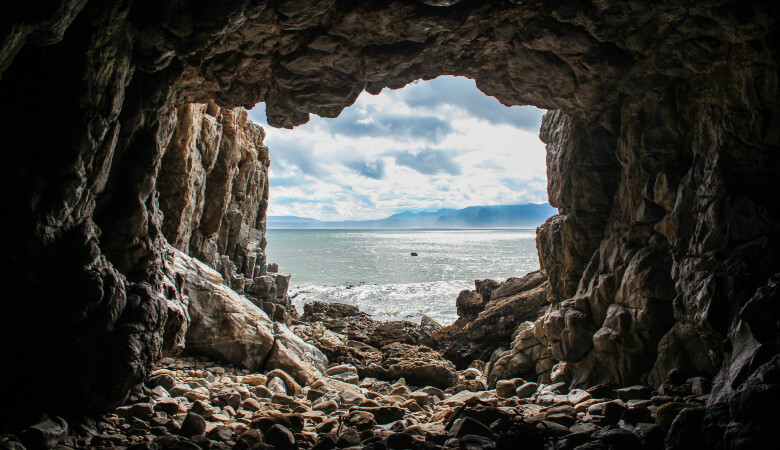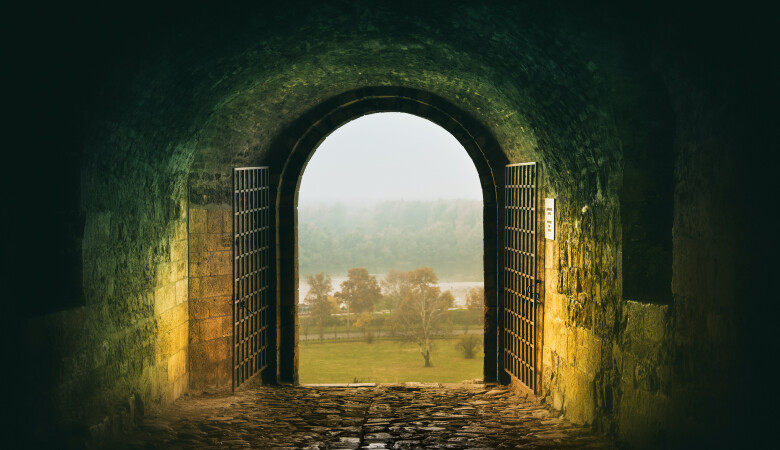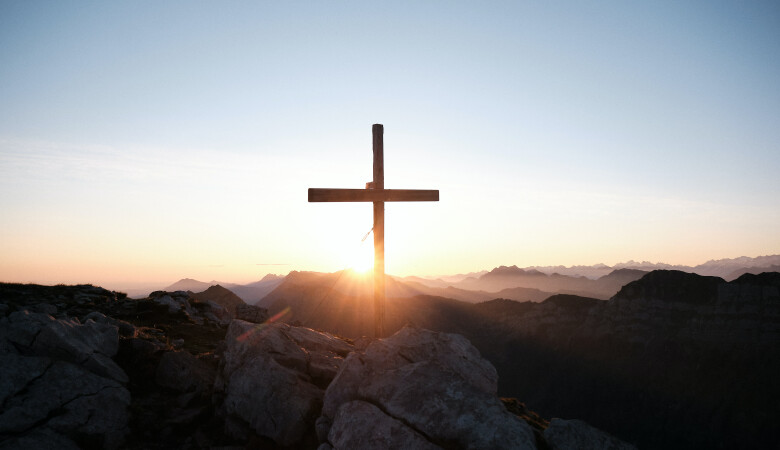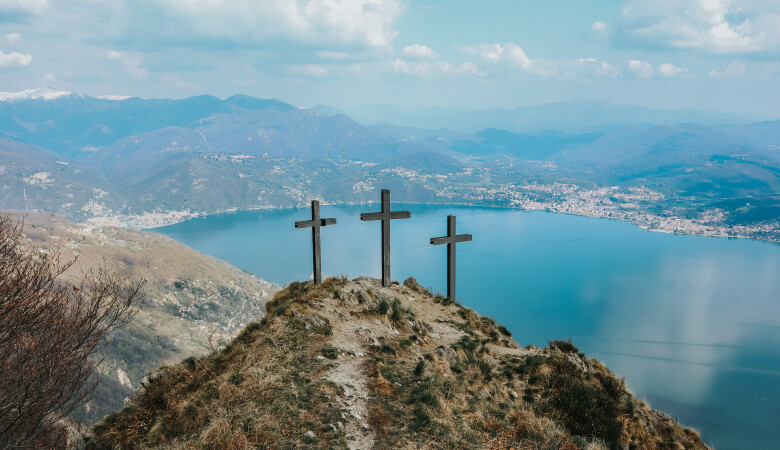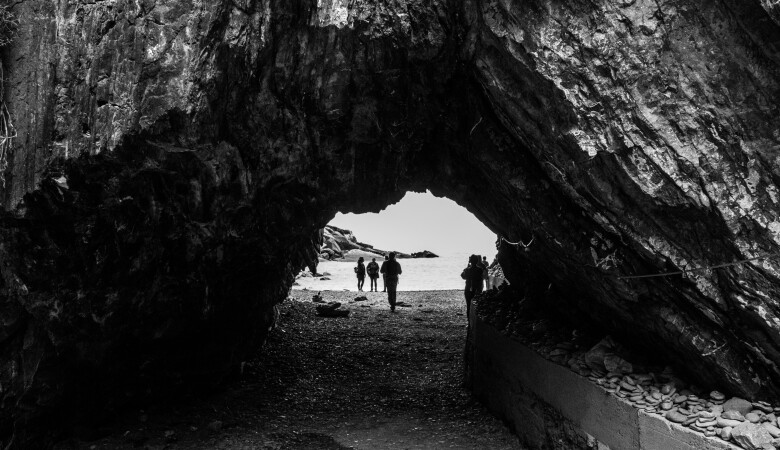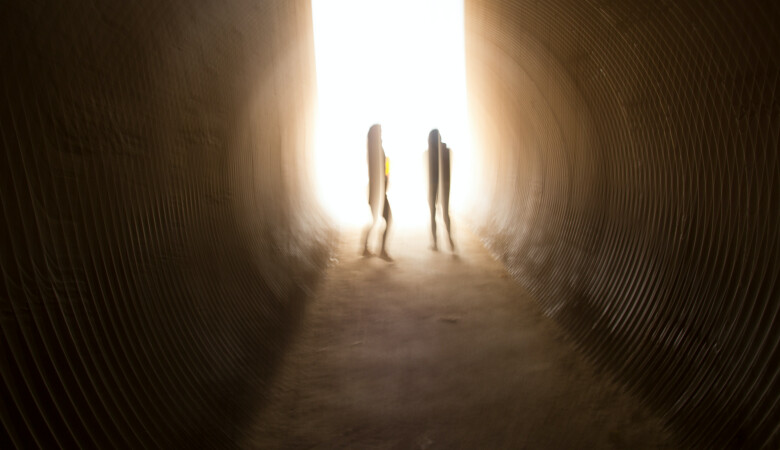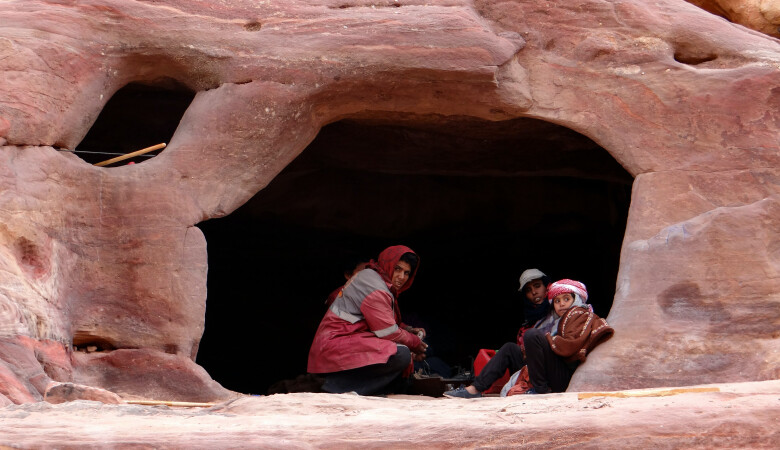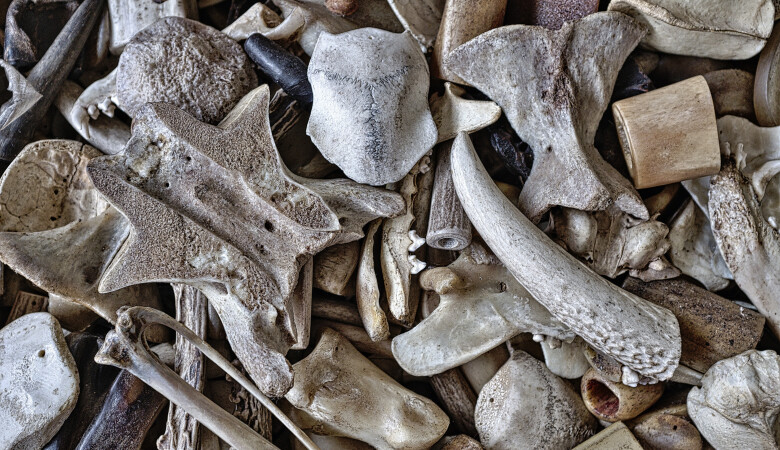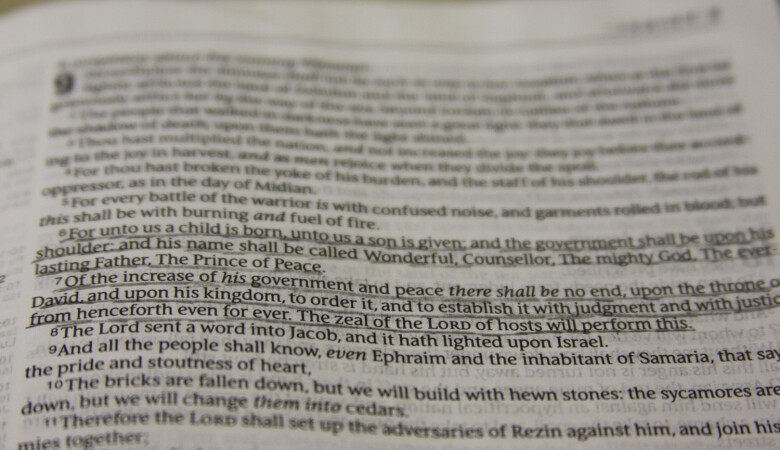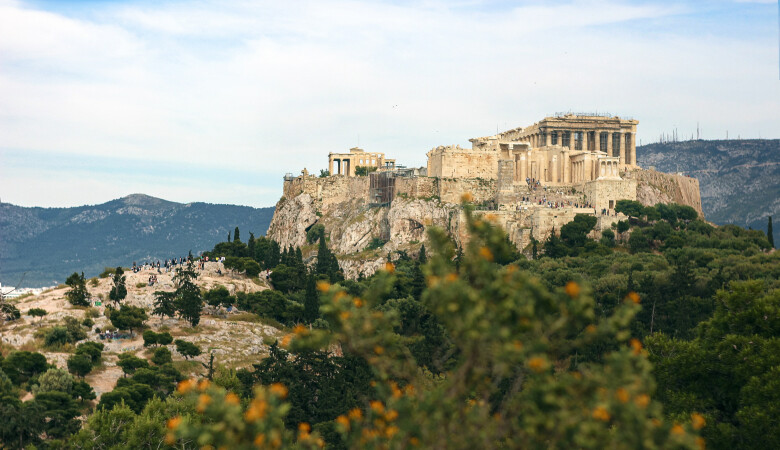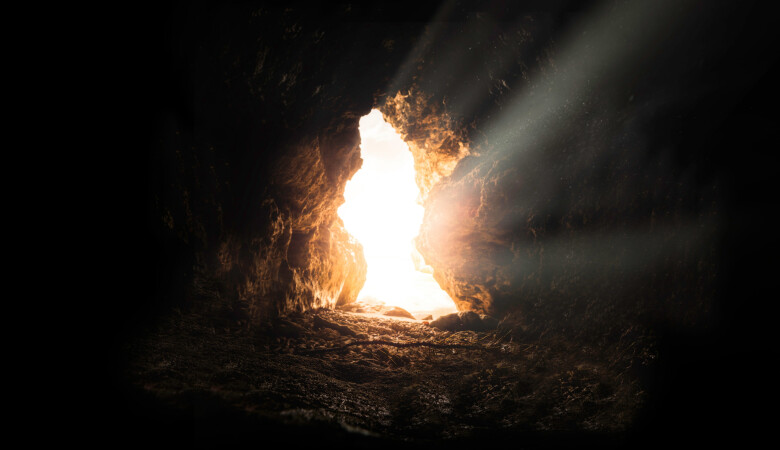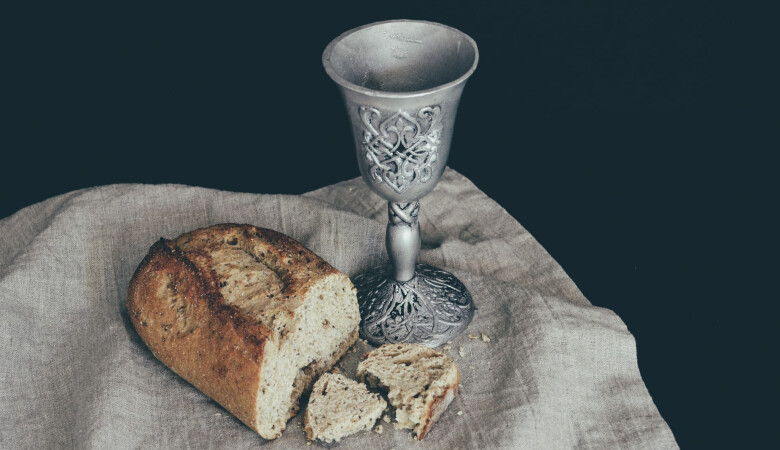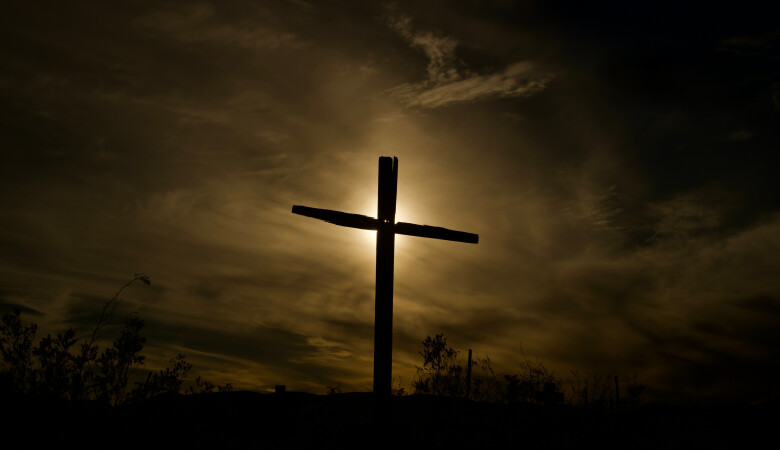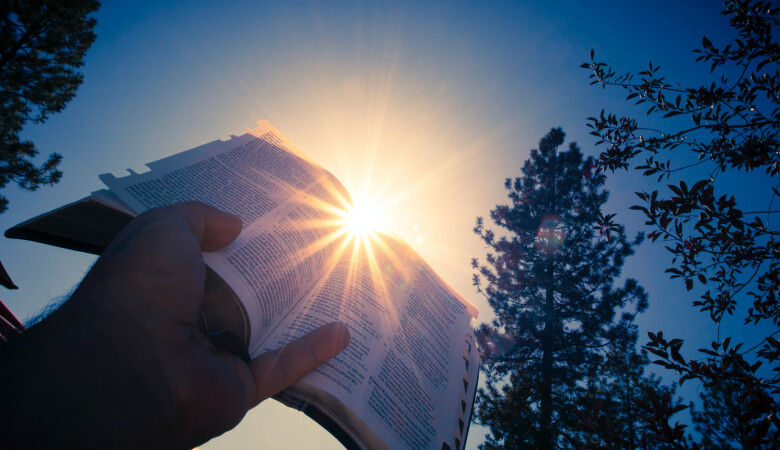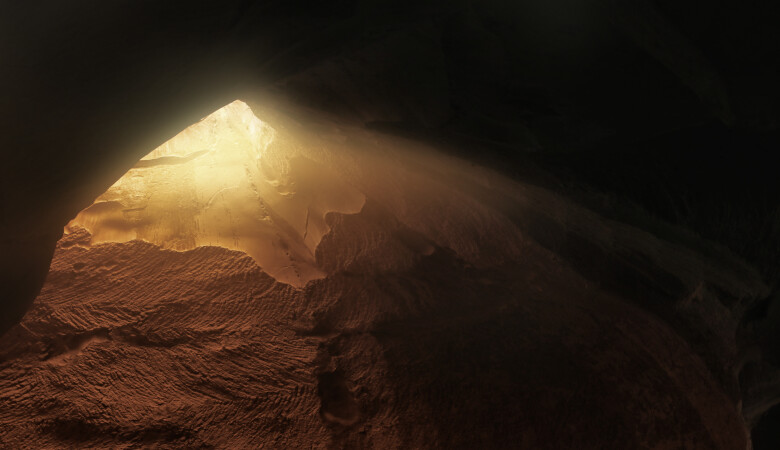Four Resurrections (2)
March 27, 2016 | Andy Davis
Ezekiel 37:1-14
Resurrection of Christ
Andy Davis preaches an expository sermon on Ezekiel 37:1-14. The main subject of the sermon is the hope we find in Scripture's testimony about resurrections.
-SERMON TRANSCRIPT-
I would love to ask that you turn in your Bibles to Ezekiel 37. I'd like you to look along with me as we're gonna be preaching through that and talking about the significance of the resurrection. And as Ray mentioned, if you didn't come here with a Bible, you certainly are free to take a pew Bible right there in front of you, the black one. You can take it home with you if you don't have a Bible at home. These are our gift to you. As he mentioned, Ezekiel 37 is on page 724, and I'd love for you to just look along with me.
This is a day of celebration for us who are Christians. And I've had the privilege of traveling all around the world in my ministry, and I've been with brothers and sisters in many different countries. And I thought about it, and I've often thought about this before, just the circuit of the sun around the world, 24 hours. The 24 time zones. Actually, I find out there’s more than 24 time zones, so that kind of blew the illustration. There's actually a tiny time zone all by itself near the island of Australia and New Zealandhe. They’ve got their own time zone. And there's like 450 people there but I know that there's some Christians there. So what I'm saying, in every time zone, there are believers, there are brothers and sisters.
And Christi and I had the privilege of worshipping with brothers and sisters in Japan, the land of the rising sun. And our brothers and sisters there have already risen long before us to praise Christ the resurrected Savior. And I've seen Christian brothers and sisters in China — I haven't been with them for Easter, but I've seen them. And our brothers and sisters in India have already done their diligence and they've risen and they're praising Christ. And I've been with brothers and sisters in Africa. And I've been with brothers and sisters in Europe. I've even been with brothers and sisters in Christ worshipping in Newfoundland — it's the easternmost part of North America, and I stood at this rocky point that's the most eastern place there is. It’s like halfway from here to Ireland, and I stood there and I praised God and how — I wasn't there on Easter, but I thought of a sunrise service — and how awesome it would be there to gather with brothers and sisters in Christ and celebrate the resurrection of Christ. All the way across the four time zones of our country. Not been to Hawaii yet. If there's anyone there that wants to invite me to come preach, I'd be delighted to come. Maybe even for Easter. I haven't been to the Aleutian Islands yet, or in Alaska, but all around the world, our brothers and sisters are assembling and worshipping, and we are here now today.
And it's a special time for us to say, “Christ is risen! He is risen indeed!” not “He was risen” or “He has been raised.” Those things are true, but he's still alive, and he will never die again. And we get to celebrate this. And as I have the privilege of preaching, year after year, I get to choose a text of Scripture, and I yearn to take the words of Scripture’s testimony and just bring it forward to you again —the simple stunning fact, the history changing fact, that Christ Jesus was raised from the dead on the third day after being crucified for our sins. As 1 Corinthians 15:3-4 says, “For what I received I passed on to you as of first importance: that Christ died for our sins according to the Scriptures, that he was buried, that he was raised on the third day according to the Scriptures.”
So Christ was raised from the dead according to the Scriptures. So in Paul's day, the Scriptures would have been the Old Testament. And Daniel was talking about how it might have been surprising to some of you to turn back to Psalm 16, but that's the very text that Peter preached from to prove the resurrection of Christ. What a magnificent text that is. But we must know that Christ's resurrection was not for his own sake, but he came, he was born, he lived, he died and was raised for our salvation. For our sakes, he was raised. Job asked poignantly a question, and it stuck with me since the first time I heard someone preach on it — a question for the entire human race. All of us are under the death penalty. If the Lord doesn't return in our generation, every single one of us will die. All of us. We are facing our own mortality. And not only that, but we're facing death of loved ones, even if we should live many years beyond a beloved spouse or parents, brothers and sisters, even children. How tragic that can be to bury a child. We understand from Hebrews 9:27, “It is appointed to each one of us to die once and after that to face the judgment.”
So death is coming and we're aware of it. And if you're not really acutely aware of death, it probably just means that you're young, you haven't lived long and you haven't experienced. But even some young people have come face-to-face with the death of a loved one of a father or mother or someone close to them. And so we're aware of this. And Job asked this poignant question in Job 14:14, "If a man dies, will he live again?” “Is there a resurrection for me? I wanna live, I want to be raised from the grave, I don't wanna die, I don't want all of the things I cared about to go into dust in the wind, I want to live forever.” And all of us — you know it says in Ecclesiastes that he set eternity in our hearts — we wanna know if we can defeat death.
And that's why this morning I wanna preach an Easter sermon for you from Ezekiel 37. The astonishing vision of Ezekiel and the valley of dry bones. Now, some of you are saying, “Why oh why, dear pastor, are you bringing us here, Ezekiel 37?” You thought there might be the chance that Ray would read a Scripture and I'd preach from something else, something like Matthew, Mark, Luke, John, something from that. But no. You know, if you've been here long enough, that's likely to be what the pastor is gonna get up and talk about. Why oh why, the valley of dry bones?
It's one of the eeriest and creepiest prophetic visions there is in the Bible, honestly. Like something from a horror film. One commentator said it's like strolling through someone else's hallucination. And you read that and it's a sense of eeriness and sense of terror almost. Ezekiel was lifted by the Spirit and placed in a vast valley of dry bones — not a cemetery, but what seems somewhat to have been an ancient battlefield. A vast army — the word army is used of dead people whose bones are not all piled up in one place, like in some slaughterhouse — but they're just scattered all over this vast valley.
And these dry bones are summoned to life by a preached message. By the word of God given through a human messenger, and by the howling of a powerful supernatural wind that came from the four corners of the earth that comes and breathes life into this vast army of dead people, and in stages they come to life. They stand up on their feet and they're alive.
So why is this a fit message for Easter Sunday? Some years ago as I was doing evangelism in the workplace, I was sharing with one individual. And I love to use miracle stories as a platform for sharing the Gospel. I would just commend that to you, my brothers and sisters in Christ. We have a responsibility to take the Gospel to this region, to Durham, and to the surrounding area or wherever you're from, you might not be from here. But if you're a believer, it's our job to preach the Gospel to people who are lost. And I would just commend this pattern to you of memorizing accounts of miracles, of Jesus actually doing miracles.
And of course, one of the most powerful ones is the account of the raising of Lazarus from the dead. Lazarus has been dead for four days, and I love to use the kind of “you are there” approach to evangelism. And I try to bring the lost person into the story, and I say, “What would you have felt if you had been there and the stone was rolled back, and Jesus calls out in a loud voice, ‘Lazarus come forth!’ And there he comes this dead man still wrapped in grave clothes, coming out into the sunshine. ‘Take off the grave clothes and let him go.’ What would you think if you were there?" He said, "I'd be running as fast as I could the other direction, screaming in terror."
That was not the reaction I was hoping for. I was hoping he'd say, "Oh, I would think Jesus was the Son of God. I'd wanna believe in him." But he's not... “I'm running as fast as I can.” Think he probably watched too many horror films or something like that and he thought maybe it was like a zombie thing or something like that. No, it was an actual resurrection. Well, whatever he might have been feeling at that, what about this? This isn't just one individual, this is a whole army of dead people, and they come to life in stages where you get to see kind of the construction of the human anatomy before the skin even goes on these dead people. So it's a bit eerie.
And so you're saying, "Why here, oh pastor?" Let me say it very plainly: I believe that this text prophesies ultimately not just Jesus’s resurrection, although it's because of his resurrection that we have hope, but it predicts our resurrection from the grave.
And so what I wanna talk to you about is four resurrections that I take from this text. First, I'm gonna talk about Christ’s bodily resurrection, which I'm not gonna find directly in the text, but it's implied. And I'm just gonna say Jesus paid it all, as we already sang. And there wouldn't be any life, there wouldn't be any history, there wouldn't be anything worth doing if Christ hadn't been raised from the dead. So we'll start with Christ’s bodily resurrection. Secondly, I'm gonna talk about Israel's national resurrection and what God was doing in the nation of Israel. Thirdly, I'm gonna talk about the church's spiritual resurrection. And then fourthly, the church's bodily resurrection from the dead. These are the four things.
I. Christ’s Bodily Resurrection
Let's start with the first, Christ’s bodily resurrection. This is the reason for our celebration today. This is why we're assembled. This is why Christians assemble on the first day of the week around the world — not on the seventh day, the Sabbath, but we moved over to the first day to celebrate the new creation of which Jesus's resurrection body is the beginning. It’s a start of a new universe, his physical body raised from the dead. And so we Christians, we worship on the first day of the week in honor of the resurrection of Jesus Christ from the dead. So we're gonna celebrate — as Andy said this, “We're gonna be here next week” — please join us 'cause we celebrate the resurrection every week to some degree, But it's good for us, isn't it, to have a focused day to celebrate the resurrection of Jesus. And that's what we do.
Now, we understand that before the resurrection, there had to be the death. And so we celebrate not just Jesus's resurrection, but we celebrate his atoning sacrifice, his death on the cross for our sins. We learn from the Bible that “…the wages of sin is death.” [Romans 6:23] That from the very beginning in the Garden of Eden, God commanded Adam and Eve not to eat from the tree of the knowledge of good and evil, “for in the day that you eat of it, you will surely die.” [Genesis 2:17] God said the death penalty came on them that day, and they did die, though not that day. And Ezekiel said in Ezekiel 18:4, “... the soul who sins shall die.” It's universal. We have all sinned, all of us, and fall short of the glory of God.
And therefore there is a death penalty over us, and I don't mean just physical death. We know that Christians do die physically — that's true — but there is a second death. A terrifying second death, which is clearly depicted in the book of Revelation, of being cast into the lake of fire to eternally die under the wrath of God. That’s the second death. And Jesus came to deliver us from that second death, and then ultimately from the first death as well, by our resurrection.
That is the salvation that Jesus paid for in blood on the cross. And so we celebrate that. We know that Christ died in our place. Isaiah 53:6 says very plainly, “We all, like sheep, have gone astray, each of us has turned to his own way; and the LORD has laid on him the iniquity of us all.” That's substitutionary atonement. Jesus stood in our place, and he took the lightning strike of God's wrath in our place and carried it safely away from us who believe in him, so that the wrath of God will never strike us down. But Jesus is our substitute, and we do not fear death. We do not fear death because we know that after death comes life and not second death. After death comes eternity in the presence of God, and Jesus paid for that in blood. And we celebrate that.
But God raised him from the dead on the third day to vindicate the atoning work of Christ. He was put to death for our sins and raised to life for our justification, our vindication, the book of Romans says. And so in that way, we know that God has accepted the blood atonement of Jesus. He’s accepted it by raising Jesus from the dead.
And so the actual accounts of Jesus's resurrection are thrilling. All four of the Gospels have different accounts, sometimes slightly different, sometimes significantly different, but easily harmonized. Matthew 28:1-10 is one of them. It says there, “After the Sabbath, at dawn on the first day of the week, Mary Magdalene and the other Mary went to look at the tomb. There was a violent earthquake, for an angel of the Lord came down from heaven and, going to the tomb, rolled back the stone and sat on it. His appearance was like lightning, and his clothes were white as snow. The guards were so afraid of him that they shook and became like dead men. The angel said to the women, ‘Do not be afraid, for I know that you are looking for Jesus, who was crucified. He is not here; he has risen, just as he said. Come and see the place where he lay. Then go quickly and tell his disciples: “He has risen from the dead and is going ahead of you into Galilee. There you will see him.” Now I have told you.’” So the women hurried away from the tomb, afraid yet filled with joy, and ran to tell his disciples.” This is my favorite part.
“Suddenly Jesus met them.” Every genuine believer in Christ looks forward to that moment. Oh, I look forward to seeing Jesus. I yearn to see him who died for me and who was raised for my justification. “Suddenly, Jesus met them. ‘Greetings,’ he said.” I love that. It's like… “Hi! Chaire.” It's just, “Hi, how are you?” And there he is. “Greetings.” And then “They came to him, clasped his feet…” they're falling at the ground in worship, which is completely appropriate. They're grabbing on to him and they’re “worship[ing] him. Then Jesus said to them, ‘Do not be afraid. Go and tell my brothers to go to Galilee; there they will see me.’”
John's Gospel [John 20:19-21]. They're assembled there “on the evening of that first day of the week,” and the doors are “locked for fear of the Jews.” Suddenly — there's that word again — Jesus comes and stands in their midst and says, “‘Peace be with you.’After he said this, he showed them his hands and side… [and] Again Jesus said, ‘Peace be with you! As the Father has sent me, [even so] I am sending you. … And then he breathed on them and said…, ‘Receive the Holy Spirit.’” So there's the different accounts, and so the bodily resurrection from the dead is testified to clearly in Scripture.
The Case for Easter by Lee Strobel is an apologetic work defending the resurrection. I'll tell you how I will defend apologetically the resurrection of Jesus from the dead. The Bible says Jesus was raised from the dead. I believe the Bible; therefore Christ has been raised from the dead. That's the apologetic. And I actually think it's going to be in the end as simple as that: You will believe in the resurrection if you believe in Scripture; if you don't believe the Scripture, you won't believe in the resurrection. They’re indissolubly linked together.
But the clear implication that Jesus has given us here, and this is so beautiful, John 14:19: “Because I live, you also will live.” Oh, we can't get enough of meditating on that link. In effect, “My resurrection victory is your resurrection victory. I'm giving you the spoils.” So that's the link to Ezekiel 37. There will be no one raised out of a grave if it weren't for Jesus's death and resurrection. No one.
Jesus said in John 11:25-26, “I am the resurrection and the life. He who believes in me will live, even though he dies; and whoever lives and believes in me will never die.” Then Jesus asked that penetrating question, "Do you believe this?" Well, do you? You're attending worship here today, it's Easter Sunday. Do you believe that Jesus is the resurrection and the life? And if you do, you will be raised from the grave and spend eternity with him.
And this resurrection that Jesus has planned is worldwide in its extent. Revelation 7:9-10 says, “After this I looked and there before me was a great multitude that no one could count, from every nation, tribe, people and language, standing before the throne and in front of the Lamb. They were wearing white robes and were holding palm branches in their hands. And they cried out in a loud voice: ‘Salvation belongs to our God, who sits on the throne, and to the Lamb.’” So Christ's resurrection is a historical fact. We Christians believe it. There is no religion in the world for which history is so important as Christianity. If Christ has not been raised, we are all wasting our time being here today. I say that honestly. But Christ has been raised from the dead. We believe in the history. We believe it actually happened, and it is on the basis of that that everything else I'm gonna say to you flows. God knew from before the foundation of the world what he would do, and that Jesus would die and he'd be, not just killed, but raised to life on the third day, and on that basis come these other three resurrection.
II. Israel’s National Resurrection
Let's talk about the second one now. And that is Israel's national resurrection. Now, Ezekiel the prophet lived in a time 600 years before Christ. He was a prophet called by God in a time of national crisis. The northern kingdom of Israel had already been deported by the Assyrians 150 years before that because of their sins. They violated the law of Moses; they could not stay in the Promised Land.
The Jewish nation was divided into two kingdoms. The northern kingdom had gone quickly into idolatry and despite many warnings from prophets, they were deported, exiled 150 years before that. The southern kingdom of Judah tragically followed their same example and fell into the same pattern of sins. And the time had come — in Ezekiel's lifetime, in Jeremiah's lifetime, in Daniel's lifetime — the time had come for the southern kingdom of Judah to be deported by the Babylonians as an act of judgment against them for their wickedness and sins.
And so Ezekiel's book begins with a stunning vision of the glory and the grandeur of Almighty God, a vision that just stretches human language almost to the breaking point where you're trying to understand this vision of the glory, of the likeness of the glory of God, I think it says. And then he commands… this glorious God commands this man Ezekiel to go and minister to the Jewish exiles, who are on their way to or already in Babylon, to minister to them.
Now, this exile is a severe punishment. The Jews were now finally removed from their promised land after many warnings. The inheritance that God had promised them in Abraham, Isaac and Jacob, that he had given them through Joshua — this Promised Land — was now taken from them because of their sins, because of their wickedness. And they were going to Babylon. Actually, most of the Jews of that generation died. They were slaughtered by the sword, famine and plague. They died because of their sins, most of them did. A tiny remnant of them would march in chains as slaves to Babylon, and they would live out the rest, for the most part, the rest of their lives in captivity. The Jews as a race, it seemed at that point, was dead. Their hopes had died. Because honestly, usually what happens is with some of these nations and they get absorbed and drawn into a conquering nation, like the Moabites and the Ammonites and the Syrians and all that. You get drawn into some conquering nation — you lose your national identity, you just melt in. You inter-marry and you just become Babylonian, basically.
So Israel as a nation seemed dead. Jeremiah the prophet who lived at the same time as Ezekiel, spoke the chilling words of the desolation of Jerusalem in Lamentations 1:1. I picture him sitting perhaps on the Mount of Olives looking down over the city, smoldering, destroyed, the temple destroyed. People dead everywhere. And everyone else deported. And he's there alone. And he says, “How deserted lies the city, once so full of people!” So it seemed that Israel's hopes were dead.
And so God moves Ezekiel to a place of vision. Look at verses 1 and 2, “The hand of the LORD was upon me, and he brought me out by the Spirit of the LORD and set me in the middle of a valley; it was full of bones. He led me back and forth among them, and I saw a great many bones on the floor of the valley, bones that were very dry.” So God moves Ezekiel back and forth through this horrifying valley. It seems like a battlefield, 'cause they're called an army at the end. But they're dead and they've been dead a long time. This isn't like Lazarus who's been dead four days and there's a bad odor. We're way, way, way, way past bad odor now. Any moisture there was in these corpses is long since gone. The carrion birds have had their way with them, and then the worms and the microbes, they're done. There’s nothing left, and they're gone too, they're just... It says very dry.
I was talking to one of my kids about this a few days ago. And you remember when Elijah was on Mount Carmel and he pours out the water and says do it again and pours out the water on this sacrifice. It's like really, really wet. That means it's gonna take a really great miracle for fire from heaven to burn it. I just think it's interesting. It’s like, it's a miracle either way, but no, this is a great miracle 'cause it was really wet. Well, this is a great miracle because these bones were really dry. Like how dead were they? Really dead. Not just a little dead — really dead. You're like, “Well, that doesn't make any sense you're dead or you're not.” But these are very dry bones. It’s a sense of that — complete. So this isn't one of those out-of-body experiences on the gurney at the ER. This is long, long decades beyond that. Centuries beyond it, maybe.
As you read this account, see your own future. It would be wrong for me to say right now, “I don't want to be morbid.” I want to be morbid — I want you to look at your own death. I want you to be aware that you will die. You don't know when. You don't know how much longer you have, but you will die. If you're not part of that mysterious final generation, you will most certainly die. So as you look into the picture of bones, think about yourself. Think about this: There is no other Savior than Jesus. There’s no other way to be saved from your own death and from the judgment of God except faith in Christ. So that's what I want us to see.
Now, God asks a stunning question, and Ezekiel gives a very humble answer, verse 3: “He asked me, ‘Son of man, can these bones live?’” You know, it’s actually not much different than Job's question that I mentioned: “If a man dies, will he live again?” It's actually pretty much the same thing, except that this time, God's asking his spokesman. Now, we shouldn't imagine that God didn't know what he was gonna do. God knew exactly what he was going to do. But he asked it to test Ezekiel, and Ezekiel, I think, passed the test with flying colors. “O Sovereign LORD, you alone know.” So, I'll say this: if God doesn't raise you from the dead, you will not be raised. No one else can do it. God is the only one who can do this, and he's the only one who can will it, and so the question is, will these bones live? Only God knows if they will live. God alone. But here's the beauty of the Gospel. God can raise the dead to life. Death isn't the end if God doesn't will it to be the end. And so it says beautifully in Romans 4:17. It speaks of “the God who gives life to the dead and calls things that are not as though they were.” God has the power to do that.
"God can raise the dead to life. Death isn't the end if God doesn't will it to be the end. "
And so he gives him a command and a promise, verse 4-6: “Then he said to me, ‘Prophesy to these bones and say to them, “Dry bones, hear the word of the LORD! This is what the Sovereign LORD says to these bones: I will make breath enter you, and you will come to life. I will attach tendons to you and make flesh come upon you and cover you with skin; I will put breath in you, and you will come to life. Then you will know that I am the LORD.”’” So God alone can give life to the dead, but amazingly, he chooses to use faith-filled messengers to proclaim the word over the dry bones. In effect, he tells us ahead of time what he will do when as yet there is no evidence that he will do it. He promises ahead of time he will raise us from the dead, and there's no indication, there's no evidence, no proof, just the words of God.
Ezekiel is the prophet. He cannot give life to these dry bones, but he is a tool, an instrument in the hand of God. "Speak over these dry bones, oh Ezekiel." The prophetic words will make these dry bones live, even to the detailed level — tendons and flesh and skin, all of the vital organs, the systems needed for life, the muscles, intestines, the blood vessels, the brains, the nerves, and then the skin covering — all of it.
Now, God doesn't need prophets. There was no one helping God when he formed Adam out of the dust of the ground. He doesn't need us. Doesn't need you or me. But he chooses to use prophets. He chooses to use messengers. And so he uses Ezekiel, in his grace. Now he alone will get all the glory: Then all of them “will know that I am the LORD.” We're gonna spend eternity knowing that he is the Lord; we're gonna spend eternity studying what that means, that he is the Lord.
So the first phase in verses 7 and 8, the preached word, brings a partial resurrection. “So I prophesied as I was commanded. And as I was prophesying, there was a noise, a rattling sound, and the bones came together, bone to bone. I looked, and tendons and flesh appeared on them and skin covered them, but there was no breath in them.” They're still lying flat, dead on the ground, but now assembled. So Ezekiel obeyed. He spoke to these dead bones. It was just an act of faith. “Go preach to the dry bones. Speak to them.” No indication of life. Just a simple act of faith.
And as he was preaching, suddenly, I think, this eerie rattling sound comes. Can you hear it in your ears? It's scary. And I think it's like a very deep, vast, large sound. I think it's loud and I picture, if you can go with me on this, like a three-dimensional sound. It’s a deep sound, like I remember hearing the wind blowing in the Grand Canyon, and you felt like it was a mile away and deep. And so you have a sense of how wide and long and high and deep is this work, this huge valley. And this assembly that's going on. While the word is being preached, things are getting assembled, things are getting put together, things are coming into their proper alignment, bone to bone. Seems like, I think, might have been gruesome, but absolutely enthralling. Imagine what it would have been like to be Ezekiel watching this happen. But as yet, there's still no breath in them, they're still dead. I hadn't noticed until I worked through the sermon this morning, I said that they're up in their feet, they're not, they come in their feet in a minute, so they're still laying flat, they're just dead. But everything's in place.
Now we get the second phase: breath enters them. Look at verses 9 and 10. “Then he said to me, ‘Prophesy to the breath; prophesy, son of man, and say to it, “This is what the Sovereign LORD says: Come from the four winds, O breath, and breathe into these slain, that they may live.”’ So I prophesied as he commanded me, and breath entered them; they came to life and stood up on their feet-- a vast army.” So here we have an amazing play on words in the Hebrew. The Hebrew word for breath and spirit and wind is all the same. It's the same word — ruach. I love that word. They tell us, “Don't ever pronounce Greek and Hebrew.” But I'm gonna say, ruach. Isn't that awesome? Ruach. So, there's this moving. Jesus said in John 6:63, "The flesh counts for nothing. The spirit gives life. The words I have spoken to you are spirit, and they are life.” It's powerful. And so the wind comes from the four corners of the earth and breath enters into them, and they come to life. The Spirit comes. John 3:8 says, “The wind blows wherever it pleases. You hear its sound, but you cannot tell where it comes from or where it is going. So it is with everyone born of the Spirit.” So that's a picture of that.
And then the vision is interpreted. The whole thing seems to have been merely a vision in Ezekiel's mind. But now its meaning had to be spoken. And look at verses 11-14. “Then he said to me: ‘Son of man, these bones are the whole house of Israel. They say, “Our bones are dried up and our hope is gone; we are cut off.” Therefore prophesy and say to them: “This is what the Sovereign LORD says: O my people, I am going to open your graves and bring you up from them; I will bring you back to the land of Israel. Then you, my people, will know that I am the LORD, when I open your graves and bring you up from them. [Verse 14] I will put my Spirit in you and you will live, and I will settle you in your own land. Then you will know that I the LORD have spoken, and I have done it, declares the LORD.”’” It's powerful. Powerful and beautiful.
So this army represents, in some sense, the Jewish nation, and I mean the whole nation now, not the divided kingdom. He uses the word Israel but he's not meaning the northern kingdom. He's meaning the Jewish people, the Jewish nation. And so they had been scattered, divided then scattered, and it seemed like their hopes were gone forever. The image of death was real. These were real people who had really died — in the vision, I mean. The sword, famine and plague had slaughtered tens of thousands of Jews around the time of — actually — both of the exiles. They died for their sins. But the dry bones also represented, in some sense, their hopes for the future — they had none. How would it even be possible? Though many prophetic utterances in Isaiah and Jeremiah and others said that God was going to restore them, still to some degree, their hopes were dead. But God's prediction must also be seen, not just symbolic, but real. God intended to bring them back and restore them in the Promised Land and put his Spirit in them, and that they would live and he would also raise them up out of their graves, plural.
So I think this resurrection speaks of the restoration of the Jews to the Promised Land as a symbol, but that's not enough, it just isn't enough, because it alludes to a spiritual resurrection that is to come. Verse 14, "I will put my spirit in you and you will live." Now, if you would look back one chapter, probably on the same page, actually in the pew bible, it is on the same page. Ezekiel 36:24-28. This is the promise of the New Covenant. “For I will take you out of the nations; I will gather you from all the countries and bring you back into your own land. I will sprinkle clean water on you, and you will be clean; I will cleanse you from all your impurities and from all your idols. I will give you a new heart and put a new spirit in you; I will remove from you your heart of stone and give you a heart of flesh. And I will put my Spirit in you and move you to follow my decrees and be careful to keep my laws. You will live in the land I [give to your forefathers] … I gave your forefathers; you will be my people, and I will be your God.”
Friends, these are nothing less than the promises of the Gospel of salvation through faith in Christ. Christ's death and resurrection opens the door for a new covenant by which all the people of God, not just the genetic descendants of Abraham, Isaac and Jacob, but I mean everyone from around the world, from every tribe, language, and people and nation, can be saved and raised from the dead.
III. The Church’s Spiritual Resurrection
So that brings me to the third resurrection, the church’s spiritual resurrection. In order to understand this, we have to understand our spiritual state. Those of you that have been here in my preaching in Ephesians, these will be very familiar verses to you. But in Ephesians 2:1-3, it says, “As for you, you were dead in your transgressions and sins, in which you used to live when you followed the ways of this world and of the ruler of the kingdom of the air, the spirit who is now at work in those who are disobedient. All of us also lived among them at one time, gratifying the cravings of our sinful nature and following its desires and thoughts. Like the rest, we were by nature objects of wrath.”
We were dead while we lived. We were dead in our blindness; we were dead in our lusts; we were dead in our worldly pursuits; we were dead to the glory of God — it meant nothing to us; we were dead to the future of judgment and wrath that was going to certainly come on us. We were dead to these things. But God intended a spiritual resurrection for us through faith in Christ. He intended to send forth his Spirit on spiritually dead people like you and me and raise us to life. Missionaries and evangelists go out with this simple message of Christ — of Christ the son of God — who lived a sinless life, who died a bloody atoning death on the cross for sinners like you and me, and who was raised to life on the third day, and that if you repent and believe in him, your sins will be forgiven and you will live forever. And in hearing that message and believing it, you are raised to life.
It says in Ephesians 2:4 and following, “But because of his great love for us, God, who is rich in mercy, made us alive with Christ even when we were dead in transgressions-- it is by grace you have been saved. And God raised us up with Christ and seated us with him in the heavenly realms in Christ Jesus, in order that in the coming ages he might show the incomparable riches of his grace, expressed in his kindness to us in Christ Jesus. For it is by grace you have been saved, through faith-- and this not from yourselves, it is the gift of God — not by works, so that no one can boast.” That is our spiritual resurrection.
The Holy Spirit comes and you are born again. It says in John 5:24, “I tell you the truth, whoever hears my word and believes him who sent me has eternal life and will not be condemned; he has crossed over from death to life.” So I just wanna ask, has that happened to you? Have you crossed over from death to life? Did you hear the Son of God calling to you in the words of the Gospel and say you're a sinner, you're in danger of hell, you must flee the wrath to come? “I am your Savior. I’m here. Come to me, all you who are weary and burdened and I will give you rest.” Have you heard him say that to you?
Now you say, “I don't know, I've been to church for years. I've heard this; it's nothing new.” But look at Ezekiel 36, has God taken the heart of stone out and given you the heart of flesh? Has the Spirit come on you and moved you to delight in God's law and seek to keep it? Do you see a pattern of new life in you? New desires? Has this happened to you? And there's nothing I can do to make it happen to you, if you came in here spiritually dead. I could preach 100 really, really good sermons and you wouldn't... None of them would hit you unless the Holy Spirit moves in your heart. Is that happening to you? Has it happened to you? Are you alive spiritually? Have you crossed over from death to life?
And if you're a Christian, do you see the miracle that you are? Do you understand the miracle of God's sovereign grace that you are? It doesn't matter to me if you were raised in a magnificent Christian home and you never... there was never a time you didn't know Jesus. Our kids are like that. I understand. But it's still a miracle. If you're a Christian, lots of people grew up in good homes and they are not believers. Or it could be you came to faith in Christ later in life and you know exactly what I'm talking about. You know the miracle of grace that God showed you because all the people you're talking to, they're not coming over. They’ve not crossed over from death to life. That's the spiritual resurrection.
And I guess, church, if I could urge you, just we need to pray as never before for the working of the Holy Spirit through the preaching of the Gospel from the pulpit, and then throughout the week. It is the Spirit that gives life. So pray for me, every time I preach. Pray that I... Pray right now. Pray that my words would be mingled with the sovereign power of the omnipotent Spirit of God. Apart from that, nothing will happen. And pray for one another, brothers and sisters in Christ, throughout the week, that we go out and speak with the Spirit's power, transforming power.
IV. The Church’s Bodily Resurrection
Well, that brings me to the fourth, and that is the church's future bodily resurrection. Ezekiel, I think, is very specific about this. Look at verses 12 and 13. “This is what the Sovereign LORD says: ‘O my people, I am going to open your graves and bring you up from them;’” I mean, what could be clearer? Now, if it were “grave” singular, I would think it might have been a metaphor or kind of a linguistic or literary device, but there's just something very specific about “I will open your graves and bring all of you up out of them.” I think that this is predicting what's known as the general resurrection, our resurrection through faith in Christ. “I will bring you back to the land of Israel. Then you, my people, will know that I am the LORD, when I open your graves and bring you up from them.”
Now, our graves will contain our physical bodies, and if time goes on long enough, and if we've not been embalmed well (I had to add that 'cause I have a brother in Christ who wanted me to know that actually the body can last a long time; okay, so it may not just be bones), but you'll be dead, I mean really dead. And there will come a time that that's all you will be. But Jesus spoke about a future time, even beyond that, John 5:28-29: “Do not be amazed at this, for a time is coming when all who are in their graves will hear his voice and come out — those who have done good will rise to live, and those who have done evil will rise to be condemned.”
So the Apostle Paul taught plainly the details of the bodily resurrection from the grave. 1 Corinthians 15:42-44, “So will it be with the resurrection of the dead. The body that is sown is perishable, it is raised imperishable…” Meditate on that, imperishable. “…it is sown in dishonor, it is raised in glory; it is sown in weakness, it is raised in power; it is sown a natural body, it is raised…” and here's the mystery of the future resurrection, “…a spiritual body.” Whatever that is. And you will get one of them if you're a Christian. You’re going to get a spiritual body and in that body, you will experience no more death or mourning or crying or pain. You'll be free from those things forever. That's what's coming.
Now, the details are mysterious. You say, "How can God do this?" I don't understand the mechanism. What if you're incinerated in a plane crash? What if you're eaten by a shark and then something else eats that shark? I mean, what happens? I mean, you wouldn't believe the kind of things people say.
I think the eggheads on the Areopagus were asking Paul the same kind of question. “This is utter foolishness!” But Jesus said to the Sadducees, who denied the resurrection, “You are in error because you don't know the Scriptures or the power of God." Don't underestimate what God can do. God is actually presently holding together every atom in the universe and actually knows where they all are. Bible doesn't say that, but he might have even named them all. We know that he's named all the stars and because of his great power, not one of them is missing. So do not underestimate the power of God to resurrect you in some mysterious sense from the dead. So there’ll be some continuity between what was sown and what is raised. He will raise you from the dead if you are a Christian.
And into what will he raise you? He's gonna raise you into a future world that will be in some senses similar to this one, and in some senses gloriously different. It's going to be, I think, effectively, a resurrected world. So I really could have called this “Five Resurrections”, but then you would have been very discouraged and say, “We're never gonna get out of here by noon.”
But there is a future world coming, a new heaven and new earth, and we will live not merely in Palestine in the land of Israel. Because honestly, what happened was those Jews, they came back and they lived, but their hearts hadn't been transformed. God hadn't done a universal work of transformation. There were definitely Old Testament saints, but the nation as a whole culminated all of their rebellion against God by murdering his son, and rejecting him.
And then the exact same thing that happened in Ezekiel's day and Jeremiah's day and Daniel's day under the Babylonians happened again in A.D. 70 of the Romans. No different. Place was razed to the ground, just destroyed. So no, no, that's not been fulfilled. He's going to plant us not just in one locality, but in a new world. The meek will inherit what? The earth. And that new heaven and new earth will be our home forever, and it's gonna be beautiful. It will be free from all decay, free from bondage to decay, and in that world, we will live forever.
V. Applications
So applications. I've been giving you those applications, but here it is. First and foremost, I just ask, did you come in here today dead in your transgressions and sin? Did you come in here on the outside? I plead with you to be born again by hearing and believing the Gospel. You don't have to do any works — you must not do any works — not for the forgiveness of sins. Just believe the Gospel. Trust in Jesus, and you will most certainly be raised spiritually immediately, and then in the end, you'll be raised physically by the voice of your Savior, Jesus. He’ll raise you out of the grave.
Now, if you're a Christian, just pray for the working of the Holy Spirit. Pray right now, silently in your heart, pray that the Gospel will find fruit in people's hearts. And then esteem higher than you ever have before the work of the Holy Spirit already in your life. He took out your heart of stone, gave you a heart of flesh. Worship God for his indescribable grace to you and stand in awe of Jesus. Picture him standing in victory, in resurrection victory. Just picture that in your mind.
And if I can just say this, tenderly, do not... Let's not grieve like pagans at the death of a loved one in Christ. Let's not grieve like those who have no hope. It says in the text, “Our hope is cut off.” The answer is, “No it isn’t.” The resurrection of Jesus gives us a new and living hope, through the resurrection of Jesus from the dead, 1st Peter 1. And so your loved one who's died in the Lord, you will see him or her again. And so yes, you should grieve, but don't grieve like those who have no hope. We have a good hope in the resurrection.
Fourthly, let's yearn for the power of the Holy Spirit to operate in our lives, making us more obedient to his law than ever before. Let's live out the spiritually resurrected life he discusses in Ezekiel 36.
And then finally, if I could just fill you with hope, I just wanna minister hope. I just want you to be filled with hope about the future. If you're a Christian, your future is indescribably bright. Picture it in your mind. Picture yourself in a resurrection body, a spiritual body that's glorious and powerful, and living in a perfect world. Fill yourself with hope and joy.
Close with me in prayer. Lord, we thank you for Easter Sunday. Thank you for the resurrection of Jesus Christ from the dead. We thank you for Ezekiel 37, the valley of dry bones, and all that we learn from it. And we are aware, oh Lord, of our sins. We’re acutely aware of them, and we see the corruption in our lives, but we know that our sins and the process of physical death will not be the final word for any of us in Christ. And Lord, I just wanna finish by praying for those who came in here unregenerate, that they would find in Christ, through faith in Christ, salvation in Jesus name. Amen.


